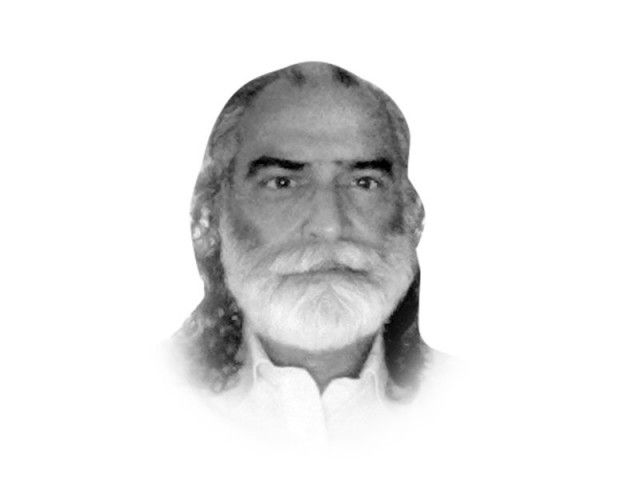Boycotting corrupt politicians
We need a people-centric coalition of civil society movements which mobilises masses & boycotts corrupt politicians.

The writer is a social activist who heads the Pattan Development Organisation. The views expressed here are his own
Many movements use the boycott method to achieve their objectives. In my view, South Korean civil society groups launched one of the most fascinating boycott campaigns. The campaign aimed to defeat blacklisted corrupt politicians and to push for political reform in the general election period in April 2000. According to a Korean scholar, Hee-Yeon Cho, “The larger the discrepancy between the political society and civil society, the bigger the driving force for the political reform gets.” The gap between the aspirations of the Korean civil society and political society was ‘structural’ in nature, as the latter was institutionally underdeveloped, extremely corrupt and alienated from the public. On the other hand, civil society was developed, ethically driven, more democratic, longing for the rule of law and good governance. NGOs undertook a number of initiatives to monitor the working of members of parliament (MPs) and government departments. Trade unions and special interest associations became more vocal and organised. They formed coalitions with NGOs and progressive academia joined them as well.
Despite mounting pressure, the political leadership failed to reform. Finally, civil society coalitions launched a blacklisting campaign against corrupt MPs and political leaders. This was a kind of civil society ‘rebellion’ against political society.
The basis of blacklisting were: corruption, violation of the laws of election, anti-human rights and anti-constitutional activities, boosting of regionalist sentiment for political interest, false reports of basic personal information including assets, tax payment and criminal records. As a result of the movement, 86 politicians were blacklisted and 87 per cent of them lost the elections due to this campaign.
Today’s Pakistan has some parallels with the 18th century Sindh and South Korean movements of 2000. Feudal exploitation and tyranny is rampant in many constituencies of rural Pakistan and the political elite is immensely corrupt. Then what is the best way forward? Organised boycott or armed uprising against the tyrant and the corrupt? Like the South Korean situation, prior to the 2000 elections, in today’s Pakistan, political society is extremely underdeveloped, shamelessly corrupt and MPs violate electoral laws and rules with profound impunity.
Though our civil society and social movements are less organised than the South Korean one, the prolonged movements for the restoration of the judiciary and landmark decisions of the Supreme Court against corruption and state failures and the more recent long march and uprising against the deaths of Shias in Quetta, along with other investigative reports from the media and civil society, have created sufficient space to launch a boycott campaign against the corrupt in the country. Moreover, a strong desire for rule of law, democratic values and good governance exists in the country and this will provide energy to a boycott campaign. Political society is failing to read the writing on the wall.
The time has come in our country to shun the corrupt. We need a people-centred, strong coalition of civil society movements, which will mobilise the masses to boycott blacklisted politicians in order to bring in change.
Objective conditions are ripe. The country is ready for change. The forthcoming general elections provide a great opportunity for this to happen. It must not be wasted. However, the real challenge is to prevent fake leaders from hijacking the longing of the people for this very change.
Published in The Express Tribune, January 30th, 2013.















COMMENTS
Comments are moderated and generally will be posted if they are on-topic and not abusive.
For more information, please see our Comments FAQ